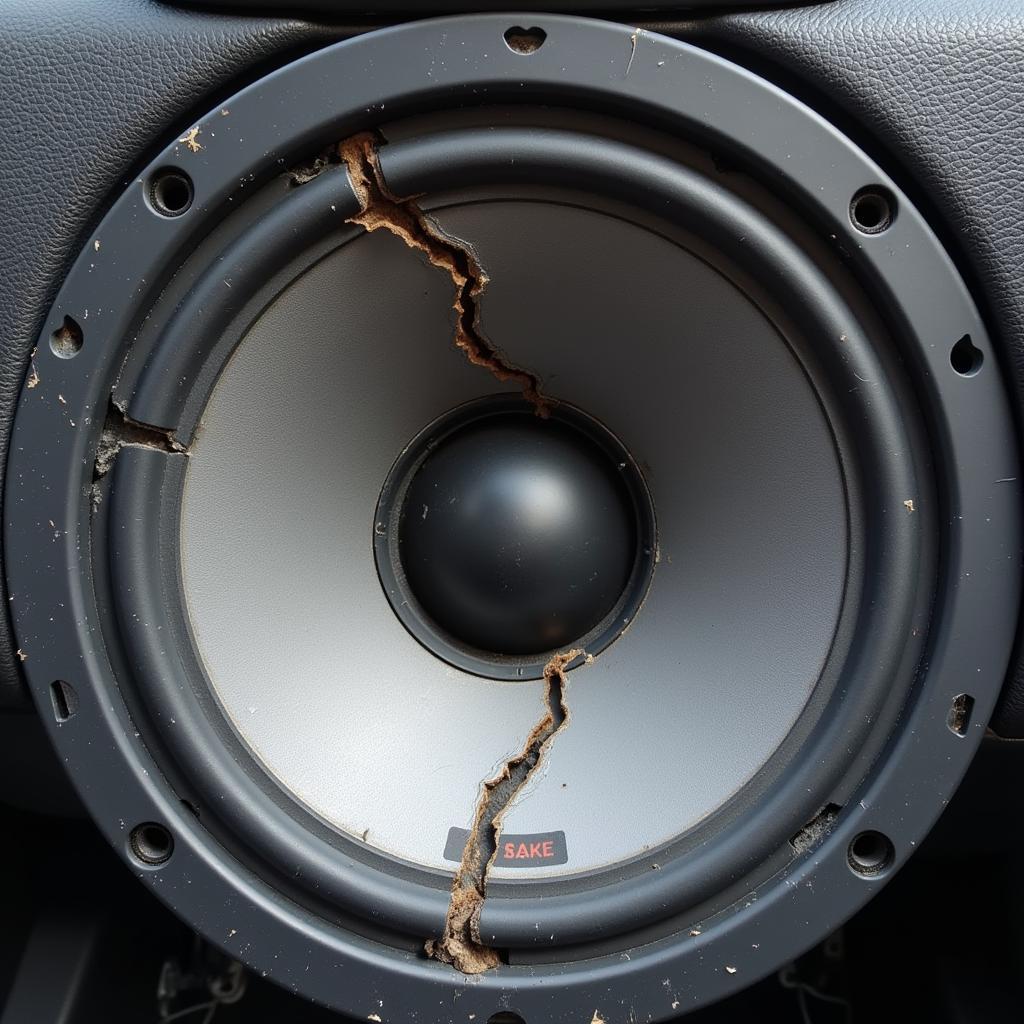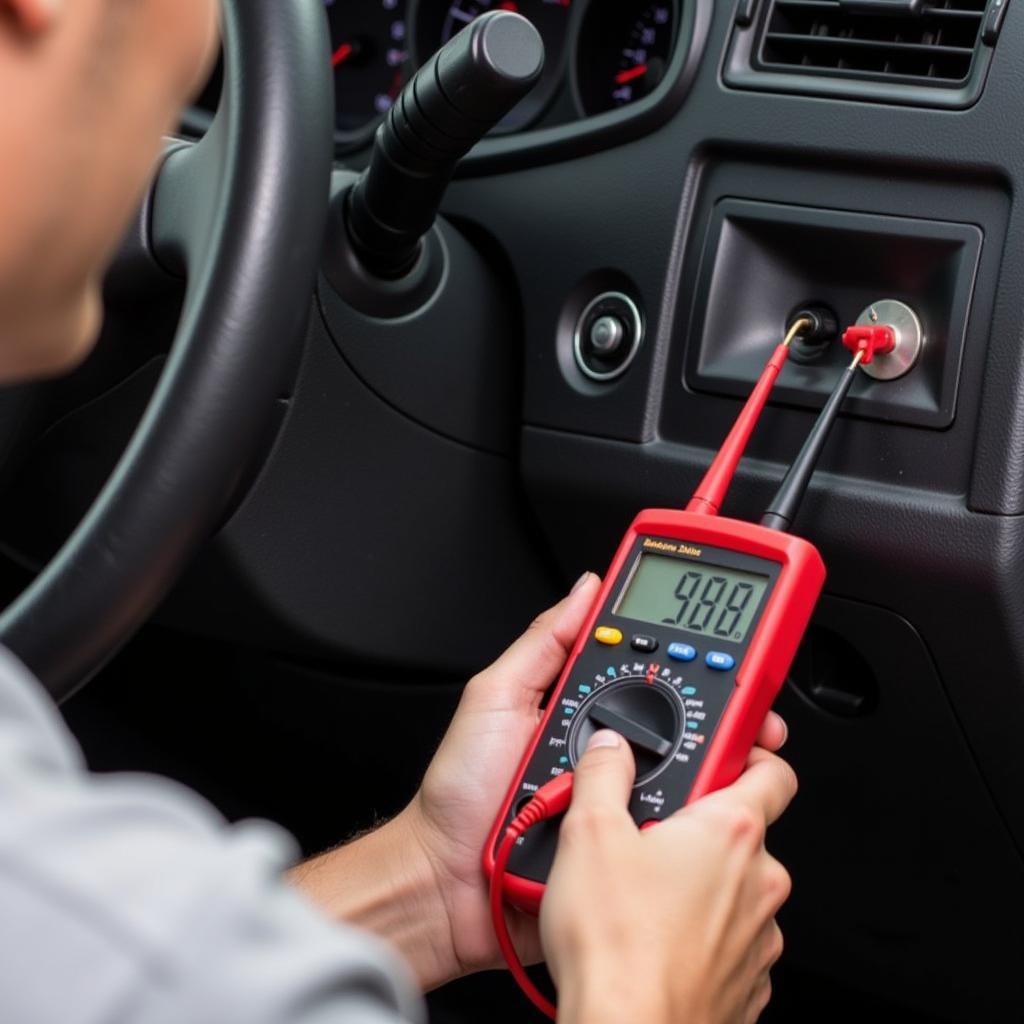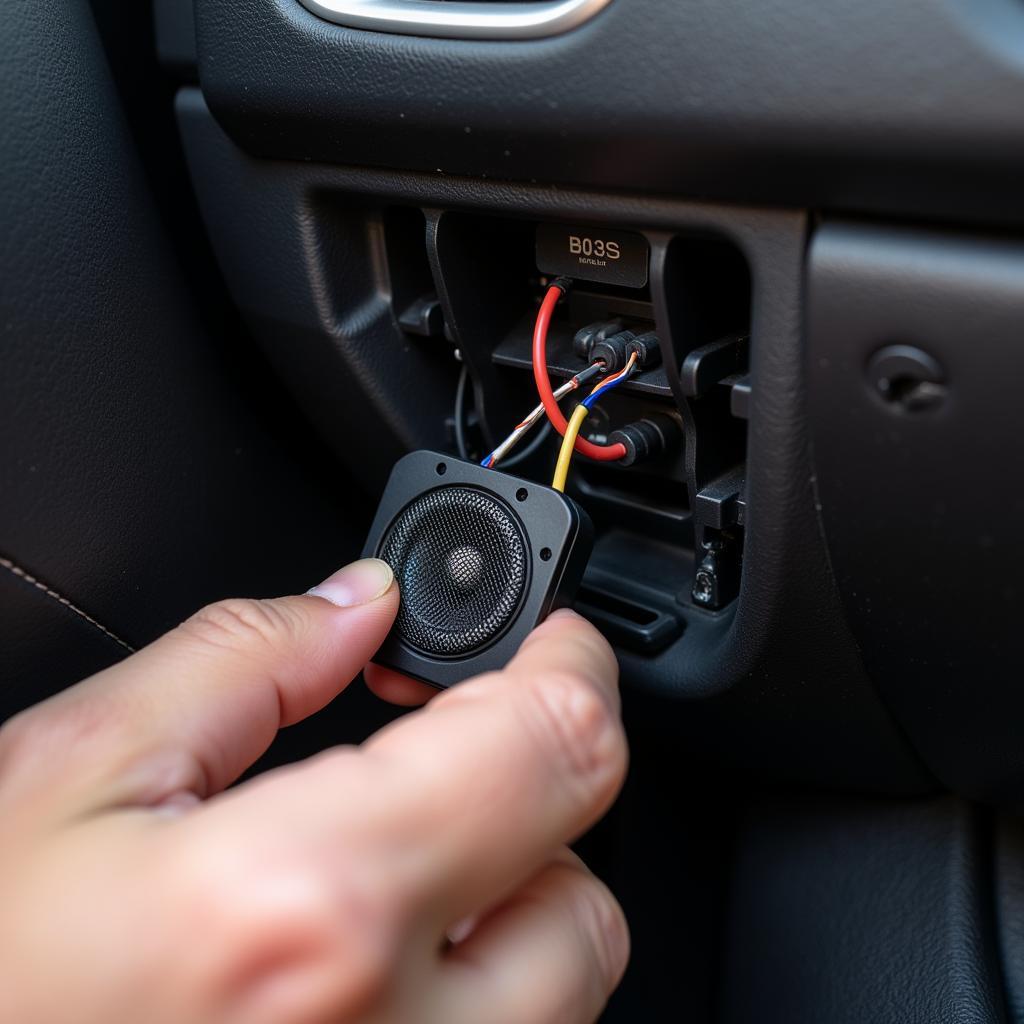A fumbling or distorted bass coming from your car speakers can quickly ruin your listening experience. This guide will help you diagnose and fix that annoying “How To Repair Car Speaker Bass Fumbling Noise” issue, covering everything from simple checks to more advanced repairs. Let’s get your car’s audio system back to booming.
Understanding the Fumbling Bass
Before diving into solutions, it’s essential to understand what causes that fumbling bass. Several factors can contribute, ranging from loose wiring to damaged speaker components. Identifying the root cause is crucial for effective repair.
Common Causes of Fumbling Bass
- Blown Speaker: The most common culprit is a blown or damaged speaker cone. This can happen due to excessive power, age, or physical damage.
- Loose or Damaged Wiring: Loose connections or frayed wires can disrupt the signal to the speaker, resulting in distorted bass.
- Amplifier Issues: A malfunctioning amplifier can send distorted signals to the speakers, causing the fumbling noise.
- Enclosure Problems: If your speakers are enclosed, a leak or damage to the enclosure can affect the bass response.
- Head Unit Problems: Although less common, issues with the head unit can also contribute to distorted audio.
 Blown Car Speaker Cone Showing Damage
Blown Car Speaker Cone Showing Damage
Diagnosing the Problem
Pinpointing the source of the fumbling bass requires a systematic approach. Start with the simplest checks and gradually move towards more complex diagnoses.
Checking the Wiring
Inspect all the wiring connections to your speakers, amplifier (if applicable), and head unit. Look for loose connections, frayed wires, or exposed metal. A simple loose connection can often be the culprit.
Testing the Speakers
One way to test if a speaker is blown is by gently pressing on the cone. If you hear a scratching or rubbing sound, the speaker is likely damaged. You can also use a multimeter to check the speaker’s impedance.
Isolating the Issue
Try connecting a different speaker to the same channel of your amplifier or head unit. If the problem persists, the issue likely lies with the amplifier or head unit. If the new speaker works fine, the original speaker is likely the problem.
 Testing Car Speaker with Multimeter
Testing Car Speaker with Multimeter
Repairing the Fumbling Bass
Once you’ve identified the cause, you can proceed with the appropriate repair.
Replacing a Blown Speaker
Replacing a blown speaker is usually straightforward. Disconnect the old speaker, connect the new speaker, and ensure the polarity is correct.
Fixing Wiring Issues
If you find loose or damaged wiring, repair or replace the affected wires. Use appropriate connectors and ensure all connections are secure.
Addressing Amplifier or Head Unit Problems
Amplifier or head unit issues may require professional repair or replacement. Diagnosing these problems can be complex, and attempting to repair them yourself could worsen the situation.
Repairing Enclosure Problems
Seal any leaks or cracks in the speaker enclosure. If the enclosure is significantly damaged, consider replacing it.
Preventing Future Issues
- Avoid Overpowering Your Speakers: Match your amplifier’s power output to your speakers’ power handling capacity.
- Use High-Quality Wiring: Invest in good quality wiring and connectors to prevent future connection problems.
- Protect Your Speakers: Protect your speakers from physical damage and excessive moisture.
 Installing a New Car Speaker
Installing a New Car Speaker
Conclusion
Fixing a car speaker bass fumbling noise can range from a simple DIY fix to a more complex repair. By following the steps outlined in this guide, you can diagnose the problem and take the necessary steps to restore your car’s audio quality. Remember to prioritize safety and seek professional help when needed. Don’t let that fumbling bass ruin your driving experience any longer!
FAQ
- What causes car speakers to distort at high volume? Distortion at high volume is often caused by overpowering the speakers or a malfunctioning amplifier.
- Can I repair a blown speaker myself? While some minor repairs are possible, replacing a blown speaker is typically the best solution.
- How can I prevent my car speakers from blowing? Avoid overpowering your speakers and protect them from physical damage.
- Why is my bass fumbling even at low volume? This could indicate a loose connection, a damaged speaker cone, or an issue with the amplifier.
- Do I need special tools to replace car speakers? Basic tools like screwdrivers and wire strippers are usually sufficient.
- How long do car speakers typically last? The lifespan of car speakers varies, but with proper care, they can last several years.
- Is it better to repair or replace a damaged car speaker? In most cases, replacing a damaged speaker is more cost-effective and provides better results.
I am John Miller, a certified automotive audio technician with over 20 years of experience. “A fumbling bass is often a sign of a damaged speaker, but don’t rule out wiring issues. A simple loose connection can often be the culprit.”
David Wilson, an audio engineer with extensive experience in car audio systems, adds, “Protecting your speakers from excessive power and physical damage is crucial for preventing future problems. Invest in quality wiring and connectors for optimal performance.”
“Remember, diagnosing the problem correctly is half the battle. Take your time, and don’t be afraid to seek professional help when needed,” advises Sarah Johnson, a car audio specialist with over 15 years of experience.
Need further assistance? Contact us via WhatsApp: +1(641)206-8880 or Email: [email protected]. Our 24/7 customer support team is ready to help.

Leave a Reply